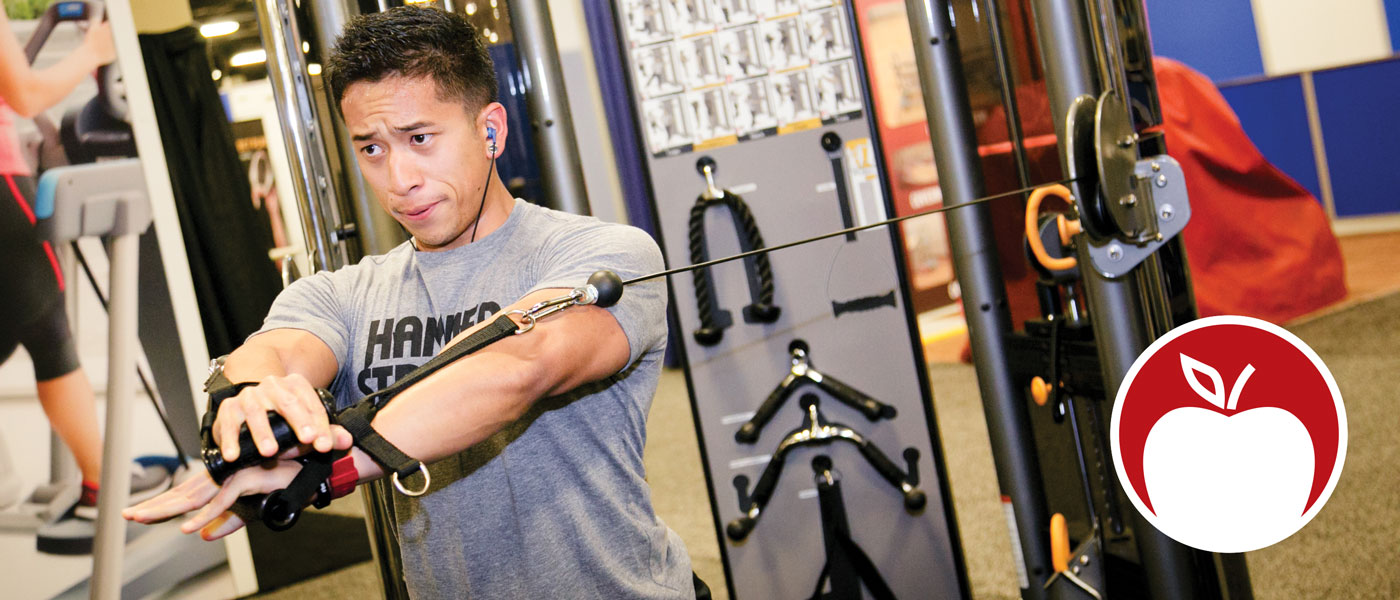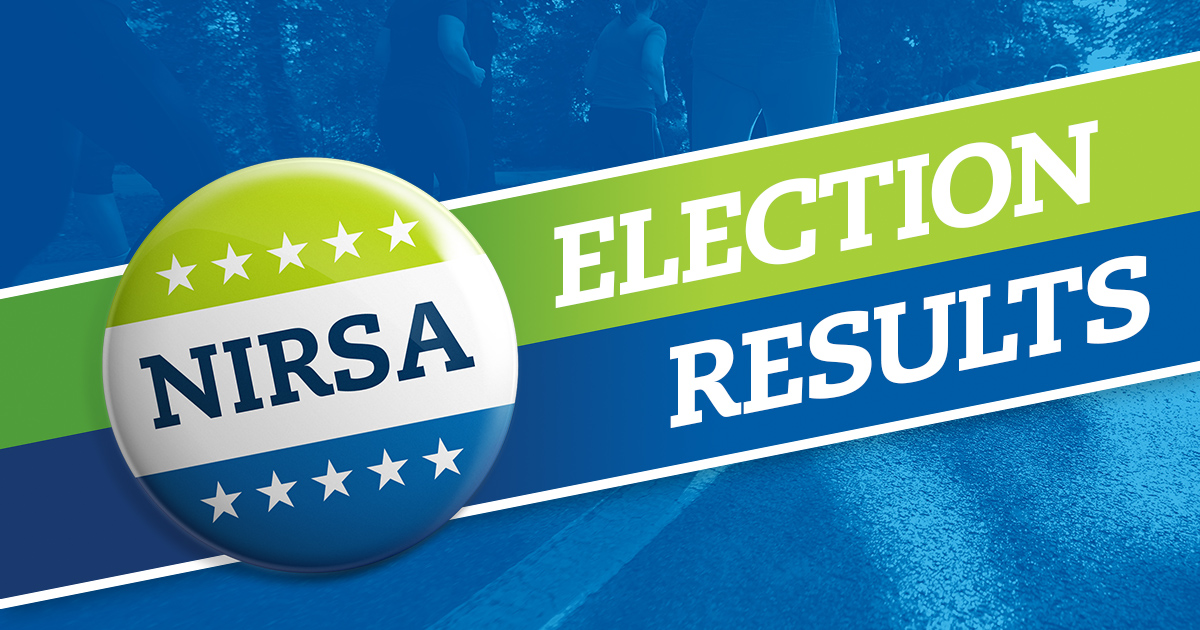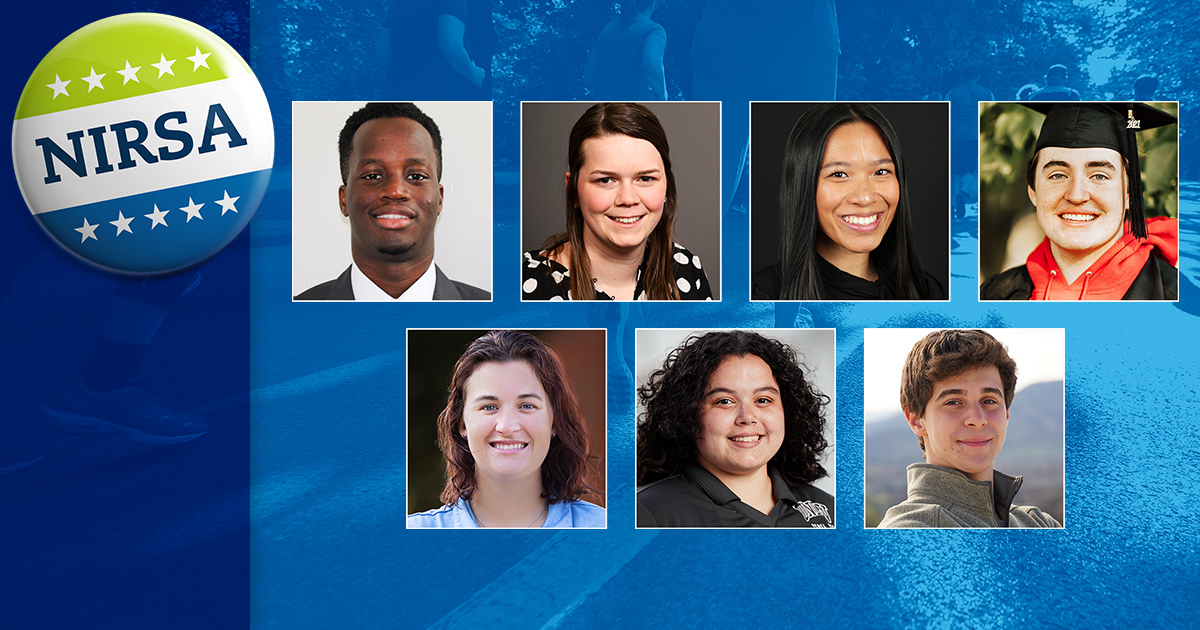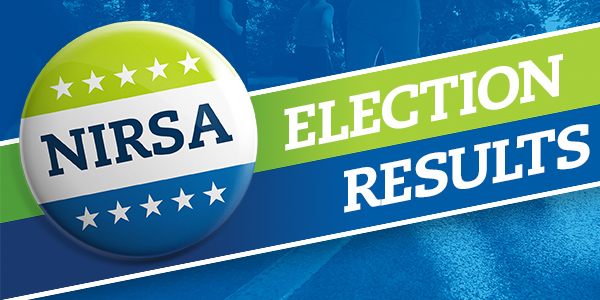By George Brown, the University of Alabama and April Moore, Florida State University
Exercise and fitness play a large role in campus recreation; however, recreation programs contribute to more than just physical wellness. They actually have a strong impact on all dimensions of student wellbeing—physical, social, emotional, intellectual, spiritual, and environmental. Given this, NIRSA recognizes health and wellbeing as one of its core strategic values—and to promote this value, the Association has created the Health and Wellbeing Commission.
More than Physical Wellbeing
Recreation offerings on campuses have long been associated with physical health—stronger bodies, improved muscle tone, increased cardiorespiratory endurance. Recreation departments are often high-traffic locations—the “active living room” of a campus—and so they are integral in supporting their campus’ overall wellbeing. There will actually be a preconference workshop at the 2015 NIRSA Annual Conference called “Creating a Culture of Evidence for Health and Wellbeing” which will discuss how rec professionals can use evidence-based programming to validate the important contributions they make to their campuses.
When institutions embark on health and wellbeing initiatives, their recreation departments are sought after to provide resources and expertise on physical wellness. These may include supporting student health peer advisors, offering smoking cessation programs, alcohol and drug awareness campaigns, safe spring break alternatives, and stress reduction resources around final exams.
The NIRSA Health and Wellbeing Commission wants, however, to take part in the ongoing dialogue regarding how campus recreation impacts many other dimensions of wellbeing; it wants to promote awareness of the fantastic benefits that participation in campus recreation activities has on these other dimensions of a student’s health and wellbeing:
Social Wellbeing
Playing intramural and club sports develops an appreciation for teamwork, cooperation, and sportsmanship. Being a part of a group actually promotes interactions that transcend the sport or activity, which helps create friendships and support groups. “Engaging Social Justice: From Awareness to Action” is a preconference offering at NIRSA 2015 that delves into this particular dimension of wellbeing.
Emotional Wellbeing
Working out can lead to the release of stress and anxiety, which are often associated with the pressures of college life. Physical activity can improve coping mechanisms that are often challenged in collegiate settings.
Intellectual Wellbeing
Studies repeatedly show the impact that study breaks have—especially those that include physical activities and exercise—in improving comprehension and retention of academic course material.
Spiritual Wellbeing
Many campus recreation programs include mindfulness classes and outdoor recreation opportunities that inspire participants to become more centered. These programs encourage individuals to cultivate the connection between the mind, body, and spirit as well as to appreciate the environment in which they live.
Environmental Wellbeing
Outdoor recreation opportunities move participants into the natural world. Many programs include learning objectives focused on the preservation and protection of nature as well as the cultivation of a symbiotic relationship with the outdoors.
Health Promotion
The Health and Wellbeing Commission supports the idea that getting students involved in health through recreation is easy. Many campus recreation programs offer introductory fitness classes, individual and group personal training, and sports leagues that seek “free agents”—or students who may not have established team connections. Taking advantage of campus recreation resources is a great way to become more connected with others who share a desire to stay healthy in a variety of wellness arenas.
Great resources for how to embrace lifelong habits of health and wellbeing are available on the NIRSA website and the American College Health Association website. And all NIRSA members who attend the 2015 NIRSA Annual Conference & Recreational Sports Expo have the opportunity to more fully explore this strategic value.
The theme of the 2015 Annual Conference is “Moving Our Values Forward,” and health and wellbeing has been thoughtfully integrated into the program. Attendees can find a complete list of sessions that examine the topic by clicking below.
For more information about the NIRSA Health and Wellbeing Commission, please contact NIRSA Senior Director Keli Kuykendall.






